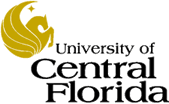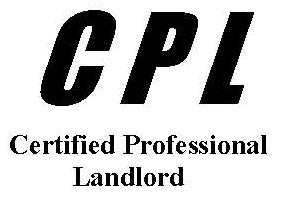I was inspired to write this article after receiving a phone call with questions regarding my take on the legality of being a "wholesaler" versus being a licensed real estate broker. The question is how does one get paid for re-selling a property that is tied up with a purchase contract or option contract. Now I am going to disclaim first and foremost that I am not an attorney and my advice is simply based on my own experiences as a real estate broker, a wholesaler, and an investor.

For those real estate brokers / Realtors out there that don't know what a "wholesaler" is, let me give a quick explanation. A true "wholesaler" is basically someone that signs a purchase contract or an option contract with a property owner at price $A and then sells / assigns that contract to an "end buyer" at price $B. Then the end buyer closes on the property and either buys it directly from the seller. Or sometimes a double closing occurs and the wholesaler first buys from the seller and then shortly (or often immediately) thereafter the end buyer buys from the wholesaler. This scenario can be extremely profitable for the wholesaler with many wholesalers making from anywhere between $3,000 to $10,000 per transaction. And I will admit I've double closed a few deals as a wholesaler and made well over $20,000 per transaction. You would be hard pressed to earn that much money as a real estate commission for a Realtor on a simple bread and butter deal.
The wholesaler is basically acting as a middleman on the transaction. Now this is similar to the function of a real estate broker or Realtor, however unlike a broker / Realtor the wholesaler is actually a principal in the transaction because the wholesaler is bound by the terms of the purchase or option contract and has money (a/k/a consideration) or the risk of causing damages on the line if they don't close. Whereas a broker / Realtor simply lists a property for sale and if it sells they earn a commission and if it doesn't sell then they typically earn nothing. Bigger risk equals bigger reward.
Where the questionable area arises is people claiming to be a "wholesaler" who are really just shopping around properties that OTHER PEOPLE have under contract. Or a "wholesaler" who has a "buyer's list" and if they come across a property that meets the criteria for their buyer, then and only then do they put an option on the property.
The reason these are questionable areas at least in my book is because the intention is to skirt around the real estate broker licensing laws. I know many people that have committed these questionable activities for years and not gotten into trouble for it. Good for them. Plenty of people run unlicensed daycares out of their homes and nobody cares until some kid gets hurt or worse. Although I know that unlicensed activity is the #1 complaint that the Florida Department of Business and Professional Regulation (DBPR) gets, I have never heard of anyone actually getting prosecuted. It is a 3rd degree felony and I'm sure prosecution does happen, but I simply have not heard of anyone getting in trouble for it besides maybe a cease & desist order here or there. So I do wonder how much the State of Florida truly cracks down on this activity.
This is a link to Chapter 475, Florida Statutes which is the real estate licensing law. Below is the definition (abbreviated by me) of a Florida real estate broker according to FS 475.01 (1)(a):
"Broker" means a person who, for another, and for a compensation or valuable consideration directly or indirectly paid or promised, expressly or impliedly, or with an intent to collect or receive a compensation or valuable consideration therefor, appraises, auctions, sells, exchanges, buys, rents, or offers, attempts or agrees to appraise, auction, or negotiate the sale, exchange, purchase, or rental of business enterprises or business opportunities or any real property or any interest in or concerning the same, including mineral rights or leases, or who advertises or holds out to the public by any oral or printed solicitation or representation that she or he is engaged in the business of appraising, auctioning, buying, selling, exchanging, leasing, or renting business enterprises or business opportunities or real property of others or interests therein, including mineral rights, or who takes any part in the procuring of sellers, purchasers, lessors, or lessees of business enterprises or business opportunities or the real property of another, or leases, or interest therein, including mineral rights, or who directs or assists in the procuring of prospects or in the negotiation or closing of any transaction which does, or is calculated to, result in a sale, exchange, or leasing thereof, and who receives, expects, or is promised any compensation or valuable consideration, directly or indirectly therefor ... (emphasis added and yes the definition goes on longer).
As you can see from the definition even if you just advertise or try to negotiate a deal for an interest in real property (like an option interest, contract assignment interest, etc.) that could fall under this definition. If you had another wholesaler sign some sort of "marketing" or "wholesaling" agreement for you to market their properties that would be very suspect of circumventing the law. Sounds like a Realtor's listing agreement to me.
You may ask - Is a contract assignment or an option to purchase really considered real estate? Again let's look at the definition of "real property" or "real estate" under FS 475.01 (1)(i):
"Real property" or "real estate" means any interest or estate in land and any interest in business enterprises or business opportunities, including any assignment,leasehold, subleasehold, or mineral right ...
The definition above does say "any interest" and specifically says "assignment." It does not specifically mention option contracts however I would imagine that the spirit of the law certainly intends to include options and the words "any interest" might encompass options anyway. Also read below about the presumption in FS 475.43 regarding options.
Now let's look down the chapter to FS 475.01 (3). It talks about "operating" as a broker. Check out the last sentence in this paragraph:
A single such act is sufficient to bring a person within the meaning of this chapter, and each act, if prohibited herein, constitutes a separate offense.
But wait there are certainly some exemptions to needing a real estate license in Florida. And absolutely there are. Attorneys and CPA's acting under the scope of that specific profession are exempt. Personal representatives of estates are exempt. Salaried employees (as opposed to commissioned salespeople) of a property owner are exempt. And a host of other exemptions that don't necessarily relate to wholesaling apply.
3 of the common exemptions that wholesalers try to fall under are as follows.
(1) Using a power of attorney. Basically you have the seller sign a form stating that you can do anything you want with the property on behalf of the seller. Sounds good. However read FS 475.011 (1) the first sentence:
This part does not apply to: Any person acting as an attorney in fact for the purpose of the execution of contracts or conveyances only ...
The law only exempts POA's for executing contracts and conveyances. But you can't use it to market other people's property, show property, act totally on behalf of the owner, etc. Only for executing documents, period.
(2) Then there is the exemption by having the owner deed the property over to you in a land trust. Pretty creative. The gurus are all teaching it. Let's refer to the last sentence in FS 475.011 (1):
This part does not apply to: Any person acting ... as trustee under a deed of trust, or under a trust agreement, the ultimate purpose and intent whereof is charitable, is philanthropic, or provides for those having a natural right to the bounty of the donor or trustor.
The law says the trust has to be "charitable" , "philanthropic" , or basically provide for the trustor's heirs. That certainly isn't a land trust. The trustee in the case of a wholesaler is not looking out for the heirs best interest - they are pretty much only looking out for their own best interest. That in itself could be a conflict of interest as well.
(3) The third exemption is the biggie. It is the one that everyone claims to fall under. The exemption for For Sale By Owners and principals. Check out FS 475.011 (2):
This part does not apply to: Any individual, corporation, partnership, trust, joint venture, or other entity which sells, exchanges, or leases its own real property ...
Now that's a great exemption. Basically if you own it, you are exempt. Under the definition of real property in the statute, that would include "any interest" and an "assignment". So that gets the true wholesaler off the hook from the licensing law. However, if you are simply shopping a property around for another wholesaler or bringing your buyers around from house to house to find out if they like it before you actually "own" it. That puts you into a very big question mark. A question mark that could be a 3rd degree felony according to FS 475.42 (1)(a).
The last thing I will point out is that the law puts the presumption on you to prove that you are not acting in violation by using creative techinques. This statute removes the cloud of a question mark and makes it pretty clear about creatively skirting around the license laws. Take a read of FS 475.43 which was intentionally created in 2003 to thwart unlicensed activity:
In all criminal cases, contempt cases, and other cases filed pursuant to this chapter, if a party has sold, leased, or let real estate, the title to which was not in the party when it was offered for sale, lease, or letting, or such party has maintained an office bearing signs that real estate is for sale, lease, or rental thereat, or has advertised real estate for sale, lease, or rental, generally, or describing property, the title to which was not in such party at the time, it shall be a presumption that such party was acting or attempting to act as a real estate broker, and the burden of proof shall be upon him or her to show that he or she was not acting or attempting to act as a broker or sales associate. All contracts, options, or other devices not based upon a substantial consideration, or that are otherwise employed to permit an unlicensed person to sell, lease, or let real estate, the beneficial title to which has not, in good faith, passed to such party for a substantial consideration, are hereby declared void and ineffective in all cases, suits, or proceedings had or taken under this chapter; however, this section shall not apply to irrevocable gifts, to unconditional contracts to purchase, or to options based upon a substantial consideration actually paid and not subject to any agreements to return or right of return reserved.
Bet the gurus didn't tell you about this law, did they? If the "title" to the real estate isn't in your name (title doesn't mean you have an option or a contract assignment - it means a deed), then you are presumed to be acting as a broker. Then it goes on to specifically say "contracts" and "options" and "beneficial title" (like a trust) not based on substantial consideration are declared void and ineffective. I'm not sure what "substantial consideration" means, but somehow I doubt $100 for a $100,000 house would be considered substantial.
I know by now that many unlicensed investors do not like what I have written above. However keep in mind that I am just quoting the law and then adding a little of my own opinion to it. Be very careful where you tread. Although I don't believe people are actually getting prosecuted over this in Florida right now, it certainly could happen. The whole real estate and mortgage industry is under a giant microscope by all levels of government and the media. So be alert and keep it legal. If you are unsure of whether or not something is legal, I strongly suggest that you talk to a competent real estate attorney.
Other articles on this subject:
The Art of Wholesaling - Part 1
The Art of Wholesaling - Part 2
The Art of Wholesaling - Part 3
To get a real estate license or not get a license, that is the question
---------------------------------------------------------------------------------------------------------------------
(Copyright © 2009. Sand Dollar Realty Group, Inc. All rights reserved.)
Rob Arnold - Your full service and investor friendly Realtor ® in Orlando and Central Florida.
407-389-7318 / 1-877-389-7318 www.SDRhouses.com We Buy Houses Florida
We sell foreclosure, short sale, and bank owned REO house home throughout Central Florida, metro Orlando, and the Space Coast. We sell and list Central Florida real estate and Orlando real estate. Free list of foreclosure and short sale houses available. Our firm also provides flat fee MLS listings, For Sale By Owner, and menu-based services in most parts of Florida.







Comments(6)